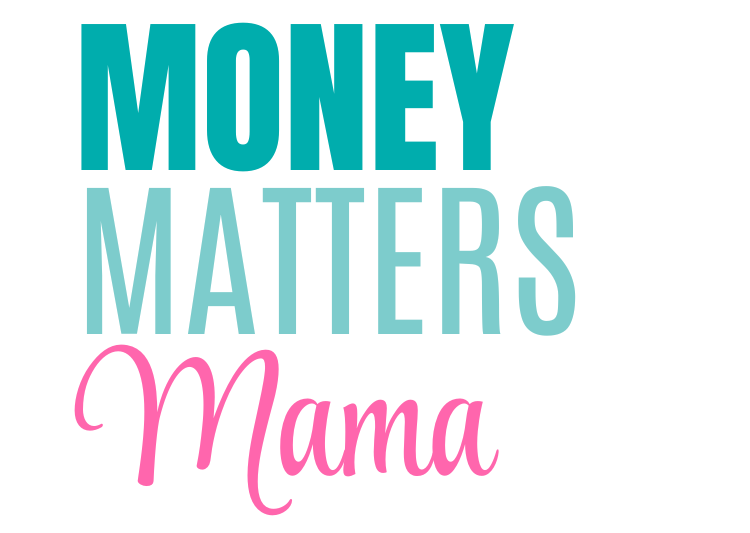Starting a budget as a beginner can feel like a hassle, but it really helps you take control of your money. I’ve been in that same spot, looking at my bank account and wondering how it emptied so quickly. If that sounds familiar, don’t worry—you’re not alone, and I’m here to help.
In this post, we’ll cover everything you need to know to start budgeting without the stress. I will explain it step by step to make it easy and doable for you. Whether you’re saving for something big, trying to pay off debt, or just want to stop living paycheck to paycheck, this guide is for you.
Here’s what you can expect:
- A beginner-friendly approach: You don’t need fancy apps or spreadsheets to get started. Simple is better.
- Practical tips for success: I’ll share ways to track spending, set goals, and adjust your budget as needed.
- Strategies to save money: Learn where to cut costs without feeling like you’re giving up everything.
- Staying motivated: Budgeting isn’t always fun, but I’ll show you how to stick with it and celebrate small wins.
And because this is something many people search for on Pinterest, you can find even more ideas and inspiration there. From beginner-friendly templates to clever money-saving hacks, Pinterest is a great resource to explore along the way.
By the end of this post, you’ll have a solid plan to take control of your finances. Let’s make budgeting feel manageable and even empowering—starting right now!

This site includes affiliate links; you can check the disclosure for more details.
Why You Need a Budget
A budget isn’t just about cutting back—it’s about taking control. It helps you decide where your money goes instead of wondering where it went. Think of it as a map for your finances, giving you clear directions so you’re not lost at the end of the month.
Here’s why a budget, especially for beginners, is really important:
- Saves you stress: No more guessing if you’ll have enough for bills. A budget shows you what’s coming in and going out.
- Helps with goals: Want to save for a trip, pay off debt, or build an emergency fund? A budget gives you a clear plan to get there.
- Stops overspending: Seeing your spending habits in black and white can be eye-opening. A budget keeps those “little extras” from adding up too quickly.
If you’re starting a budget for beginners, it’s good to know it doesn’t have to be perfect. Start small. Track your spending for a week or two. Write down every single expense, even the quick coffee or late-night takeout. Once you see where your money is going, you can decide what to change.
For example, if eating out eats up a chunk of your budget, plan meals at home a few nights a week. Love grabbing coffee? Try making it at home for a month and see how much you save. It’s all about finding what works for you.
Budgeting isn’t about giving up everything fun—it’s about knowing what you can afford. Once you start, you’ll feel more in control, and that’s a pretty great feeling. Start small, and your confidence will grow. A budget for beginners is your first step to managing money with less stress and more purpose.
Getting Started on Your Budget for Beginners
The first step to starting a budget is figuring out how much money you have coming in and going out. It’s simple but so important. Grab a notebook or use a budgeting app—whatever works best for you.
Here’s how to get started:
- List your income: Write down every source of money you receive regularly. This could be your paycheck, money from a side hustle, child support, or any other income. Make sure to use the exact amount you bring home, not your pre-tax salary.
- Track your expenses: This is where it gets interesting. Go through your bank statements or receipts and write down everything you spend. Include fixed bills like rent or mortgage, utilities, and insurance. Then add your variable expenses like groceries, gas, and entertainment.
Don’t skip the small stuff. Those little purchases, like coffee runs or snacks, can add up fast. It’s also a good time to double-check for any subscriptions you forgot about. Streaming services, apps, or memberships might be quietly draining your account.
To make it easier, break your expenses into categories like:
- Housing
- Utilities
- Groceries
- Transportation
- Entertainment
- Miscellaneous (for those unexpected extras)
Once you’ve listed everything, compare your total income to your total expenses. Are you spending more than you make? Or do you have money left over each month? This step is all about getting a clear picture. It might feel overwhelming at first, but it’s the foundation for creating a budget that works for you.
Starting a budget for beginners doesn’t have to be perfect. It’s about making progress, not stressing over every penny.
The 50/30/20 Rule
The 50/30/20 rule is one of the easiest ways to organize your budget. It breaks your income into three simple categories, making it easier to manage your money without feeling overwhelmed.
Here’s how it works:
- 50% for needs: This covers the essentials, like housing, utilities, groceries, and transportation. Think of this as the “must-pay” section of your budget—the things you can’t skip.
- 30% for wants: This bucket is for the fun stuff, like dining out, hobbies, streaming subscriptions, or saving for a vacation. It’s important to enjoy life while staying on track.
- 20% for savings and debt: This category helps you plan for the future. It includes building your emergency fund, contributing to retirement, or paying down credit cards and loans.
This rule isn’t one-size-fits-all, but it’s a great starting point. Adjust it to fit your situation. For example, if you’re tackling a lot of debt, you might shift more into the savings and debt category for a while. On the other hand, if your expenses are lower, you might have more room in the “wants” category.
To put it into action, calculate your monthly income after taxes. Then divide it using the 50/30/20 percentages. For example, if you bring home $3,000 a month:
- $1,500 goes to needs
- $900 goes to wants
- $600 goes to savings and debt
This framework is flexible, which is what makes it so practical. It gives you a clear picture of where your money should go, while still allowing room for your goals and lifestyle.
Tracking Your Spending
Once your budget is set, the next step is tracking your spending. It may seem a bit boring at first, but it’s super important for keeping your finances in check. Think of it as checking in to make sure your budget is working for you.
I like to use a budgeting app to keep things simple. Every time I spend money, I log it into the app. Whether it’s groceries, gas, or an online order, it all gets tracked. This helps me see exactly where my money is going and whether I’m sticking to my plan.
If apps aren’t your thing, you can use a notebook or a spreadsheet. The key is consistency—whatever method you choose, stick with it.
Here are a few tips to make tracking easier:
- Set spending alerts: Many apps let you set notifications when you’re nearing your limit in a category. For instance, if you’ve almost hit your grocery budget, you’ll get a reminder to slow down.
- Review weekly: Set aside a few minutes each week to check your spending. This helps catch any issues early and makes adjustments easier.
- Use cash for certain categories: If you tend to overspend on things like dining out or entertainment, try using cash instead of a card. Once the cash is gone, you’re done spending.
Tracking spending isn’t about being perfect—it’s about staying mindful. Over time, it becomes a habit, and you’ll feel more in control of your money. Little adjustments along the way can make a big difference in sticking to your budget.
Adjusting Your Budget
Budgets aren’t meant to be set in stone. Life changes, and your budget should change with it. Whether you get a raise, have a new baby, or start saving for a big goal like a house, it’s important to adjust your budget to match your current needs and priorities.
I like to review my budget every few months. During these check-ins, I ask myself questions like:
- Am I staying on track with my spending?
- Have my income or expenses changed recently?
- Do my financial goals look different now?
If I notice something isn’t working—like overspending in one category or saving less than I planned—I tweak it. For example, if grocery costs are climbing, I might reduce spending in the entertainment category to balance things out.
Here are some tips for adjusting your budget:
- Plan for big changes: If you know a major life event is coming, like a new job or moving, start adjusting your budget ahead of time.
- Track trends: Keep an eye on where you consistently overspend. This shows you which categories might need more wiggle room.
- Update your goals: As your goals evolve, so should your budget. For example, once you pay off a loan, redirect those funds to savings or a new goal.
Adjusting your budget doesn’t mean you failed—it’s just part of the process. Being flexible allows your budget to grow with you, keeping it realistic and helpful as life changes.
Cutting Costs: Budget for Beginners
Sometimes, sticking to your budget means cutting costs, but it doesn’t have to feel like a sacrifice. Small changes can add up without making life miserable. Start by looking for areas where you can save a little, and go from there.
Here are some practical ways to cut costs:
- Cook at home: Eating out is convenient, but it’s expensive. Try meal planning or batch cooking to save money and time. Even packing lunch a few days a week can make a big difference.
- Cancel unused subscriptions: Streaming services, apps, or memberships you rarely use are easy places to save. Go through your monthly charges and cancel anything you don’t truly need.
- Make your own coffee: I know it’s hard to give up a daily coffee run, but brewing at home can save hundreds of dollars a year.
- Switch to generic brands: For groceries and household items, generic or store brands are often just as good as the name brands but cost much less.
Shopping smarter is another great way to save:
- Compare rates: Look for better deals on things like insurance, internet, and utilities. A few calls or online searches could lower your monthly bills.
- Negotiate: Don’t be afraid to ask for discounts. Whether it’s your cable provider or cell phone company, you might be able to get a better rate just by asking.
Cutting costs doesn’t mean giving up everything fun. It’s about being thoughtful and choosing where to spend and where to save. With a little creativity and effort, you can find ways to trim expenses without feeling deprived, keeping your budget for beginners on track and your goals within reach.
Building an Emergency Fund
One thing I’ve learned is that life is full of surprises—some good, some not so much. That’s why having an emergency fund is so important. It’s a stash of money you set aside for those unexpected expenses like car repairs or medical bills.
Start small. Even if you can only put away a little bit each month, it adds up over time. The goal is to have enough saved to cover three to six months of expenses. I know that might sound like a lot, but don’t let it overwhelm you. Just focus on building it up gradually.
Staying Motivated
Sticking to a budget isn’t always easy. There will be times when you’re tempted to splurge or when unexpected expenses throw you off track. When that happens, don’t beat yourself up. I’ve had my fair share of budget slip-ups, but I always try to get back on track as soon as possible.
One way to stay motivated is to set goals. Whether it’s saving for a vacation, paying off a credit card, or building up that emergency fund, having something to work toward keeps me focused. I like to break down big goals into smaller milestones, so I can celebrate the little wins along the way.
Getting the Family Involved
Budgeting isn’t just about you—it’s a family effort. If everyone in the household is on board, managing money gets a lot easier and feels more like teamwork than a chore.
Here’s how I like to get my family involved:
- Hold family check-ins: Set aside time to talk about your budget and financial goals. Keep it simple and age-appropriate if kids are involved. Share how you’re doing, celebrate wins, and brainstorm ways to improve.
- Set goals together: Whether it’s saving for a vacation or cutting back on takeout, make sure everyone has a say. When the whole family is working toward the same goal, it’s more motivating.
- Teach kids about money: Involve them in small tasks, like grocery shopping on a budget. Give them a set amount to spend and let them help decide what to buy. It’s a fun way to show the value of money.
- Assign roles: If your kids are old enough, give them small responsibilities, like turning off lights to save on electricity or tracking their own allowances.
For younger kids, make it fun. Use visual tools, like a savings jar or a chart, to show progress toward a goal. Seeing how saving adds up can make it more exciting for them.
When everyone plays a part, budgeting feels less stressful. It also teaches important life skills, like how to manage money and work as a team. Plus, involving your family means you’re not carrying the burden alone—it’s truly a group effort. That makes staying on track easier for everyone and keeps your household running smoothly.
Final Thoughts on Budget for Beginners
Starting a budget for beginners might feel overwhelming at first, but it’s all about taking control of your money and building confidence in your finances. This post covered practical steps to make budgeting feel manageable and even empowering.
Here’s a quick recap of what we talked about:
- Why you need a budget: It’s not about cutting back; it’s about deciding where your money goes and working toward your goals.
- Getting started: Track your income and expenses, then organize them into categories like housing, groceries, and savings.
- The 50/30/20 rule: Use this simple method to divide your income into needs, wants, and savings, adjusting as needed.
- Tracking spending: Use apps, notebooks, or weekly reviews to keep tabs on your money and make sure you’re staying on track.
- Adjusting as you go: Budgets aren’t one-size-fits-all. Life changes, and your budget should change with it.
- Cutting costs: Small changes, like cooking at home or canceling unused subscriptions, can save money without feeling like a sacrifice.
- Getting the family involved: When everyone works together, budgeting feels more like teamwork and less like a solo task.
Pinterest can be a great resource for budgeting inspiration, from creative templates to money-saving hacks. You’ll find tools and ideas to make your budgeting journey even easier.
Remember, a budget isn’t about perfection. Start small, make adjustments as needed, and celebrate your progress along the way. Whether you’re saving for a big goal or just trying to make ends meet, a budget helps you take control and move forward. Start today, and you’ll see the benefits in no time!






